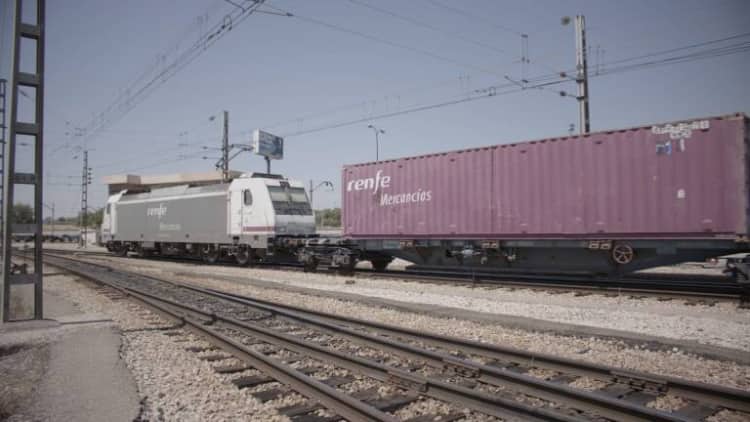The Diplomat
The Ministry of Transport, Mobility and Urban Agenda has launched a pilot project to transport corn grain by train from Ukraine to Spain, as an alternative or complement to the maritime mode, at a time marked by the invasion of Russia and the limitations in the Black Sea ports.
In this way, Renfe Mercancías has already sent 25 40-foot containers to the border between Poland and Ukraine to transport 600 tonnes of Ukrainian corn to Spain, according to a statement from the Ministry. This is a pilot test with which the Government seeks to demonstrate the technical and economic feasibility of rail transport of grain, through the rail motorway that crosses Europe from Lodz (Poland) to Barcelona Can Tunis (Spain).
Specifically, the outbound traffic is Madrid-Ludwigshafen-Duisburg-Lodz-Chelm, while the return traffic is Chelm-Lodz-Duisburg-Barcelona Can Tunis via the rail motorway, involving a distance of approximately 2,400 kilometres.
The transport logistics are planned to be carried out between Ukraine and Spain, with the goods being transferred in Chelm (Poland), 25 kilometres from the Ukrainian border. The containers, whose interior has been adapted with ‘liners’ (large special bags for transporting grain), left the Abroñigal station in Madrid on Tuesday night bound for the Polish town of Chelm, where it is expected to arrive in the fourth week of August.
There, the goods will be transferred to Renfe Mercancías containers for subsequent transfer to the terminal used by the logistics operator Kombiverker, in Lodz. The transfer between Lodz and Chelm is carried out by the Polish rail operator DBP. Once the containers have been loaded, the train will run on standard gauge (UIC) from Lodz to Barcelona Can Tunis, as the final rail destination.
From the Barcelona terminal, the goods will be transported to the end customer, and are expected to arrive in Spain at the beginning of September. Renfe will also provide its 252 locomotives to facilitate traction from Le Soler (France) to Barcelona. The first steps of this pilot project coincide with the reopening of the Black Sea ports and the maritime cereal routes supervised by Turkey.







